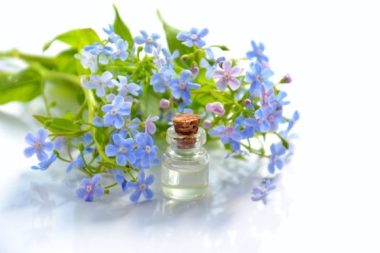

Table of Contents
Essential Oils as an Alternative
In recent years, an intriguing shift has been observed in the world of healthcare—a burgeoning interest in alternative and complementary therapies for managing major diseases. Among these therapies, essential oils have taken center stage, captivating both holistic enthusiasts and scientifically minded individuals alike. Derived from various plant sources, these concentrated extracts are celebrated not only for their aromatic allure but also for their potential health benefits. Rooted in centuries of traditional medicine practices, essential oils are now under the scientific microscope, shedding light on their therapeutic properties and their potential efficacy in managing a range of major diseases. In this article, we embark on a journey to explore the current evidence surrounding the use of essential oils in the treatment of some prevalent health conditions.
Respiratory Disorders: Breathing Easier
For those grappling with respiratory disorders like asthma, chronic obstructive pulmonary disease (COPD), or bronchitis, life can often feel like an uphill battle. The comforting scents of eucalyptus, peppermint, and lavender may hold the key to relief. Recent studies suggest that these essential oils have shown promise in relieving the symptoms associated with these conditions. Inhaling these aromatic extracts can help reduce airway inflammation, clear congestion, and make breathing easier. Moreover, their natural antimicrobial properties may offer an added layer of protection against respiratory infections, a common concern for those with respiratory disorders.
Mental Health Disorders: Aromatherapy for the Mind
In a world where mental health disorders like anxiety, depression, and insomnia affect millions, the soothing embrace of essential oils is gaining recognition. Lavender, chamomile, and bergamot are among the oils that have been studied for their potential to promote relaxation, reduce anxiety, and enhance sleep quality. These oils can be incorporated into aromatherapy sessions, utilized in calming massages, or even added to a relaxing bath. While it’s essential to emphasize that essential oils should not replace professional mental health treatment, they can certainly complement existing therapies, offering support and potential relief to those grappling with these conditions.
Digestive Disorders: Soothing the Stomach
Digestive disorders, such as irritable bowel syndrome (IBS), indigestion, and nausea, can throw a wrench into one’s daily life. Ginger, peppermint, and fennel, among other essential oils, are gaining recognition for their anti-inflammatory, analgesic, and carminative properties, which could make them effective allies in managing gastrointestinal symptoms. These oils can be used through inhalation, ingestion (with proper guidance), or topical application to help alleviate abdominal pain, reduce bloating, and support overall digestive health.
Skin Conditions: Nurturing the Skin You’re In
For those dealing with skin conditions like acne, eczema, or psoriasis, the journey to clear and healthy skin can be a daunting one. Enter essential oils like tea tree, lavender, and chamomile, armed with their antimicrobial, anti-inflammatory, and wound-healing powers. When appropriately diluted and applied topically, these oils may help quell inflammation, soothe irritated skin, and encourage skin rejuvenation. With patience and care, they can become valuable additions to a holistic approach to managing these persistent skin conditions.
Chronic Pain: A Sigh of Relief
Chronic pain conditions such as arthritis, migraines, and fibromyalgia can cast a long shadow over one’s quality of life. Peppermint, lavender, and rosemary essential oils, known for their analgesic and anti-inflammatory properties, might just hold the key to relief. Whether applied topically or used in soothing massages, these oils have the potential to reduce pain intensity, improve joint mobility, and promote a sense of relaxation.
As the scientific community continues to delve deeper into the therapeutic potential of essential oils, it’s clear that these aromatic extracts are no longer confined to the realm of traditional medicine. Instead, they stand at the crossroads of ancient wisdom and modern science, offering a holistic and evidence-based approach to wellness. While essential oils should never replace professional medical advice and treatment, they undeniably hold promise as valuable tools in our quest for healthier and more balanced lives. So, as the world turns its gaze toward alternative therapies, essential oils may very well be the fragrant path to a brighter, more balanced future in healthcare.

Immune Support: Nature’s Defense
In an era where immune health is of paramount importance, essential oils are garnering attention for their potential immune-boosting properties. Oils such as oregano, frankincense, and tea tree are being investigated for their ability to support the immune system. While they should never be considered a replacement for vaccines or traditional preventive measures, these oils may complement a healthy lifestyle by promoting a robust immune response. Their antimicrobial and anti-inflammatory qualities are seen as potential allies in our quest to stay well in the face of various health threats.
Holistic Healing: Balancing Body and Mind
One of the distinctive features of essential oils is their ability to address not only physical but also emotional and mental well-being. This holistic approach to healing is gaining recognition as more people seek ways to balance their busy lives. The soothing scent of lavender can ease stress, while citrus oils like lemon and orange may uplift the spirits. The practice of aromatherapy, which involves using essential oils to enhance mental and emotional health, is becoming increasingly popular. By inhaling or applying these oils topically, individuals can tap into their potential to promote relaxation, reduce stress, and improve overall emotional wellness.
Antioxidant Power: Protecting Cellular Health
Antioxidants play a crucial role in protecting our cells from oxidative stress and damage caused by free radicals. Some essential oils, such as rosemary and thyme, are rich in antioxidants. These compounds may help neutralize harmful free radicals and support cellular health. While a balanced diet rich in fruits and vegetables remains the primary source of antioxidants, incorporating essential oils into your wellness routine may provide an additional layer of protection.
Holistic Living: A Journey of Discovery
As we journey through the world of holistic living and alternative medicine, it’s important to approach essential oils with an open mind and respect for their potency. When used mindfully and under appropriate guidance, these natural extracts can offer a range of benefits that extend beyond the physical realm into the emotional and mental spheres.
Moreover, essential oils should always be used with care, as they are highly concentrated and can cause adverse reactions if not handled properly. Dilution and consultation with a qualified practitioner are often recommended, especially when using essential oils for specific health concerns.
In conclusion, the world of essential oils is a fascinating intersection of tradition and modern science. While they should never replace conventional medical treatment, they offer a holistic approach to health and well-being that appeals to many. So, whether you’re seeking relief from a specific health issue or simply looking to enhance your overall wellness, the aromatic world of essential oils beckons with its promise of natural and evidence-backed support.
Disclaimer
Reference:
What are essential oils? Uses and side effects (medicalnewstoday.com)
If you want to read more information about CBD, wellness, Healthcare, and much more related to healthcare, just visit –>cbdforhuman (cbdnep.com)

5 thoughts on “The Potential of Essential Oils in Modern Health”